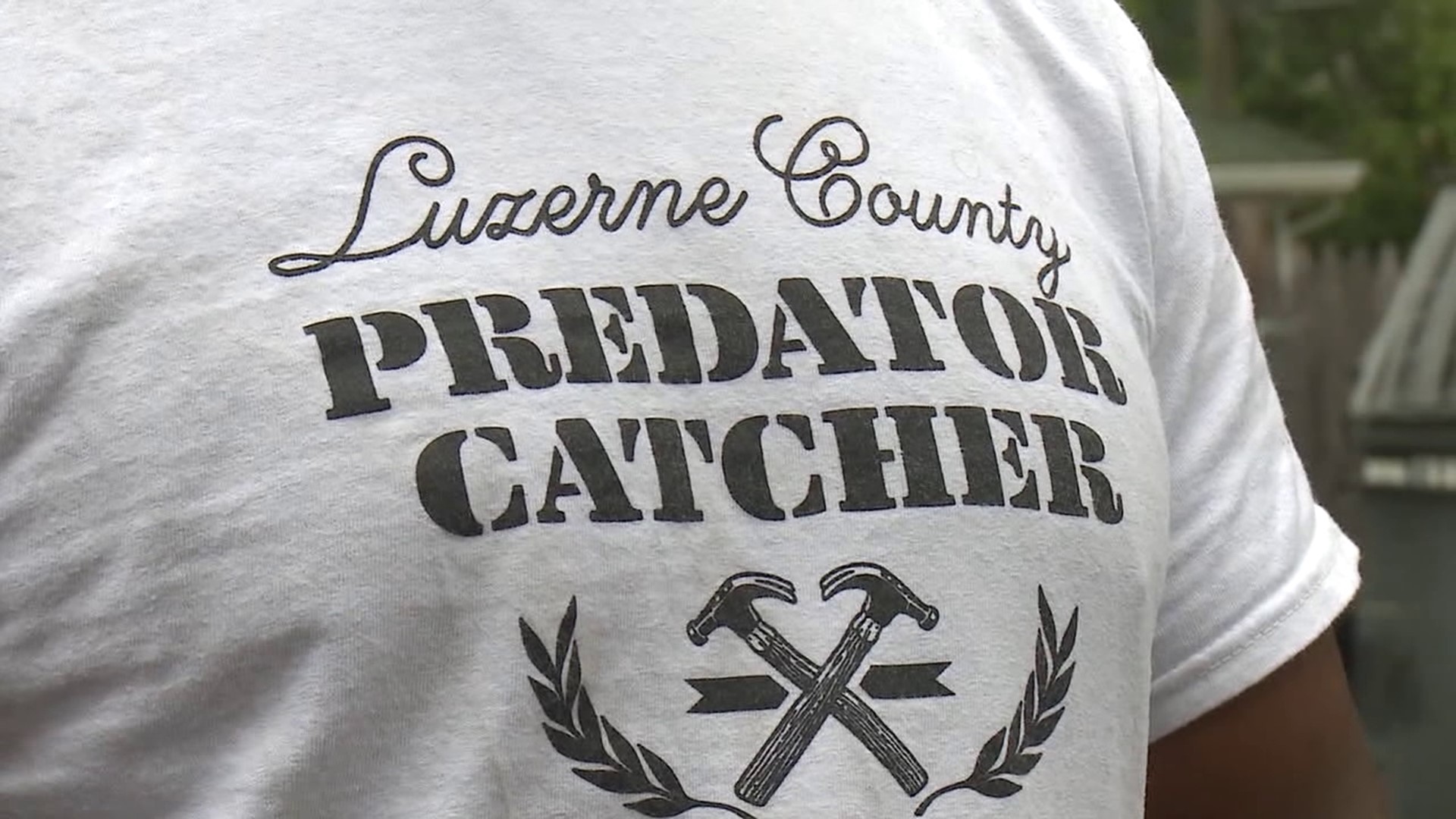WILKES-BARRE, Pa. — NOTE: The above video is from an earlier story.
The defense attorneys who asked the state Supreme Court to exercise extraordinary powers and decide the legality of law enforcement's use of "predator catcher" evidence to prosecute would-be child abusers are "making a mountain out of a molehill” and the high court should refuse to intervene, Luzerne County prosecutors argued in new court filings.
The county district attorney’s office rejected claims Musa Harris — known online as the “Luzerne County predator catcher” and as “cooperating witness” in numerous charging documents — is a vigilante. The attorneys who filed “King’s Bench” petitions with the state’s highest court are merely upset District Attorney Sam Sanguedolce is exercising his discretion in ways in which they disagree, a prosecutor claimed.
“Admittedly, he (Harris) is more involved in ferreting out a type of criminal activity than other members of the public,” Assistant District Attorney James McMonagle wrote in a response filed Monday. “But other members of the public act to help police to varying degrees. The person who notes the license plate of a car leaving the scene of a shooting, the passerby that steps in to stop an assault, or the customer who stops a robbery are not considered vigilantes, even when they may detain a suspect until the police arrive.”
“While law enforcement discourages such activity, especially when the citizen could be endangered, it does not ignore the information that is provided by the citizen who intervenes,” he continued.
The responses come roughly two weeks after a group of defense attorneys filed petitions imploring the high court to use its “King’s Bench” powers to decide the legality of using evidence gathered by Harris and others like him.
The attorneys represent people criminally charged after they were caught in online child sex stings orchestrated by citizens, not the police. They are attorneys William Abraham and Ellen Granahan, on behalf of Rodney Albertson; attorney William Watt, on behalf of Zachary Mitchell; and attorney Joseph Sklarosky, on behalf of John Davenport.
Harris, who says he’s exposed more than 620 people since 2020, poses as a child online and agrees to meet with grown men he chats with for the purpose of sex. When Harris arrives at the meet up, he goes live on social media and exposes the alleged would-be abuser.
Information he provided to law enforcement as a “confidential witness” pushed prosecutions forward on several cases.
“These are not the acts of a vigilante,” McMonagle wrote. “Instead, they are the acts of a person who, while being advised against this activity, is doing what he can to assist police in safeguarding the well-being of children in Luzerne County.”
The attorneys representing some of those criminally charged are seeking the high court’s intervention to prevent “irreparable harm.” The defense attorneys argue the statutes under which their clients are charged only empower law enforcement officers to act in undercover stings.
Proposed legislation that would amend the unlawful contact with a minor statute and allow anyone to pose as a minor never moved out of the House judiciary committee. Lawmakers “expressed a clear legislative intent” to narrow the scope of those authorized to investigate, the defense attorneys argued.
In this week’s responses, the district attorney’s office pushed back by arguing the issue is not sufficiently important to warrant immediate intervention by the courts through use of “King’s Bench” powers.
Those powers, based on English common law, allow the high court to weigh in on cases pending in lower courts — or even on matters that are not in the judicial system — when need arises to address issues of “immediate public importance,” according to the Administrative Office of Pennsylvania Courts.
The state Supreme Court rarely exercises such a power. When it has, it did so to settle issues involving election disputes, public employee strikes, prison overcrowding, judicial misconduct and legislative powers, according to the AOPC.
“Predator catcher” assistance to police does not fit the bill, county prosecutors said.
“It (King’s Bench power) is not meant to be used as a vehicle to bypass the normal adjudicative process,” McMonagle wrote. “Petitioner's efforts to have his case dismissed has been denied at every turn. He can make these arguments in the normal process of the criminal justice system. If he is convicted, he may raise these issues on appeal."
"He should not be able to bypass this process by requesting this Honorable Court to exercise a power that is to be used cautiously.”

